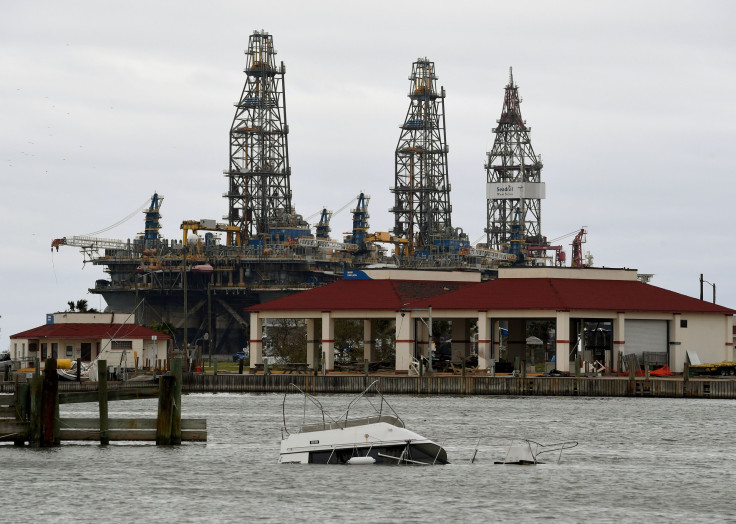Harvey Disrupts Texas Oil Production: Port Arthur Refinery Shuts Down

Hurricane Harvey caused shut down of the largest crude refinery in the United States on Tuesday, according to reports that cited sources familiar with operations. The refinery owned by Motiva Enterprises produces 603,000 barrels a day.
Motiva said the refinery was operating at 40 percent capacity Tuesday evening. Earlier in the day, it was operating at 60 percent capacity, according to Reuters, which was the first to report the shutdown. The Port Arthur oil refinery's move comes after ExxonMobil (XOM)'s decision to shut down its oil refinery in Baytown, Texas, on Sunday. One of the largest oil companies in the world, ExxonMobil said the plant was closed after the company discovered damage at the roof of the plant.
Eleven refineries have shut down their operations in Texas after Harvey made landfall Friday, S&P Global Patts, which provides information and benchmark prices for the commodities and energy markets, reported. Around 2.2 million barrels per day of refining capacity has been disrupted.
The hurricane has led to 17 percent of refining capacity going offline and that might increase the overall level of crude oil inventories over the next few months, Business Insider reported, citing Goldman Sachs' estimates. The level of inventories influences the price of petroleum products, which in turn affects the inflation level, according to investing.com, a global financial news portal.
"The slow moving nature of the storm will likely lead to these shutdowns continuing in coming days and may generate persistent damage as well," Damien Courvalin, Managing Director-Senior Commodity Strategist & Head of Energy, Agriculture Research, said according to Business Insider.
Hurricane Harvey is the strongest storm to hit Texas in more than half a century and this calamity has forced operators to shut down refineries, pipelines, and ports. Referring to the disruptions, Goldman said, "We estimate that disruptions in the energy sector could directly reduce Q3 GDP growth by as much as 0.2pp [percentage points]."
Meanwhile, Harvey was moving toward southwest Louisiana on Tuesday. Emergency workers kept rescuing people as floodwaters kept rising. Officials continued to urge people to remain patient saying the conditions would take time to improve, the New York Times reported. The death toll has climbed to 30, according to the Times.
Shelters across the state were filled with people who were desperately waiting to hear some news from close ones stuck in the floodwaters and also about their own homes, according to the publication.
On Tuesday, President Donald Trump traveled to Corpus Christi in Texas, which is one of the most affected areas. The president had insisted on scheduling a trip to Texas soon after Harvey made landfall in the state Friday night. His visit was organized for Corpus Christi as this was the closest the president could get to the worst-affected areas without posing a hindrance to the recovery efforts, the Times reported citing state officials.
Members of Trump's staff called the trip a 'humanitarian mission' and said POTUS was concerned when he watched televised scenes of wreckage and flooded waters in Houston while traveling to Corpus Christi.
© Copyright IBTimes 2024. All rights reserved.






















